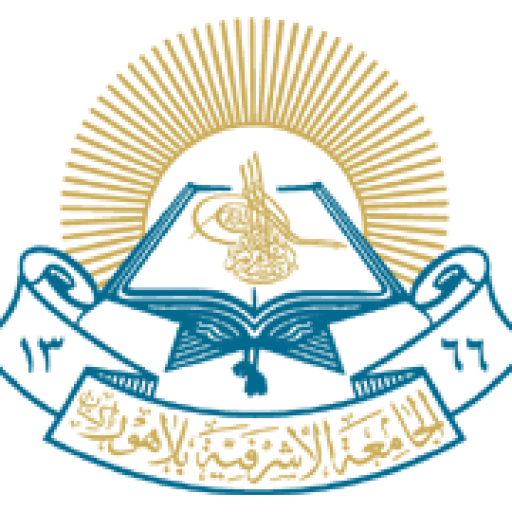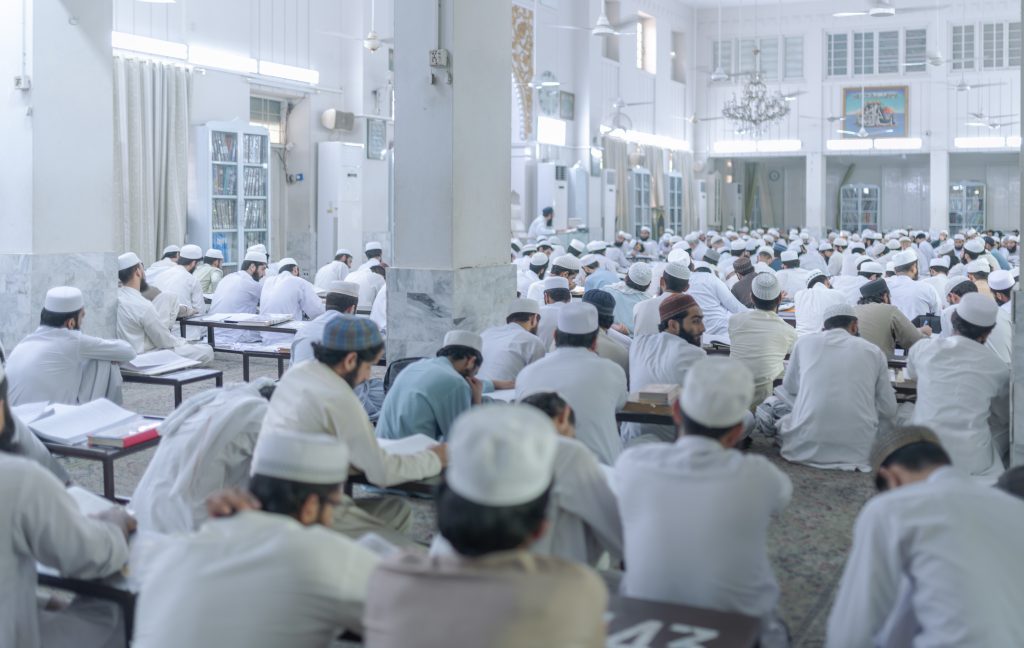Drs e Nizami (Saal e Saani)

Only for Females
4.9
Rated 4.9 out of 5

Requirements:
1- Matriculation is required for Drs E Nizami.
2- The Holy Qur’an should be read completely with Tajweed.
3- Success in Examination (Review: Holy Quran, Written Test: Urdu, Mathematics, English).
4- Memorize the words, prayers, Masnoon Duas.
Note: Drs e Nizami (Saal e Awal) Needs to be completed first.
What I will learn?
- Arabic Language: Students begin by learning Arabic grammar, vocabulary, and syntax. Proficiency in the Arabic language is essential for studying Islamic texts.
- Hadith Sciences: This area of study involves the examination of the sayings, actions, and approvals of the Islamic prophet Muhammad. Students learn the methodology of Hadith criticism, classification, and interpretation.
- Aqeedah (Creed): Aqeedah entails the study of Islamic theology and belief systems. Students explore topics such as the oneness of God, prophethood, and the belief in the unseen.
- Quranic Studies: This subject focuses on the proper recitation (Tajweed) of the Quran and understanding its meanings. Students study tafsir (Quranic exegesis) and memorize portions of the Quran.
- Fiqh (Jurisprudence): Fiqh deals with Islamic jurisprudence and the practical application of Islamic laws. Students study the principles and methodologies of deriving legal rulings from primary sources such as the Quran and Hadith.
- Islamic History: This subject covers the history of Islam from the time of Muhammad to the present day. Students study the lives of prominent Muslim figures, major events, and the development of Islamic civilization
- Level : Beginner
- Language: Urdu/English
- Format: Live online classes
- Certified Teacher
- Certificate of Completion
Have any further questions?
Feel free to reach out to our team and we’ll be happy to assist you with any queries you may have
Dars-i Nizami, an Islamic study curriculum originating in the 18th century in the Indian subcontinent, is widely utilized in madrassas and Darul Ulooms across the globe, including South Africa, Canada, the United States, the Caribbean, and the UK. The comprehensive curriculum encompasses various subjects to provide a holistic understanding of Islamic knowledge. Students commence with Arabic language studies, focusing on grammar, vocabulary, and syntax for effective comprehension of Islamic texts. Quranic Studies delve into proper Quranic recitation, Tajweed, and understanding meanings, while Hadith Sciences involve examining the sayings and actions of Prophet Muhammad. Fiqh explores Islamic jurisprudence and its practical application, Usul al-Fiqh delves into theoretical foundations of Islamic law, and Aqeedah entails the study of Islamic theology. Additionally, Islamic History covers the evolution of Islam, Logic and Philosophy equip students with critical thinking tools, and Arabic Literature and Poetry delve into classical works. Sufism and Spirituality explore the spiritual dimension of Islam, and Contemporary Issues address modern challenges. The curriculum was developed by Nizamuddin Sihalivi in the 18th century and has enduring global relevance.
